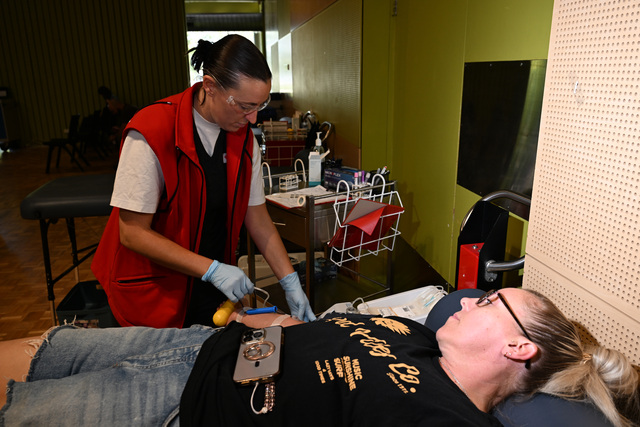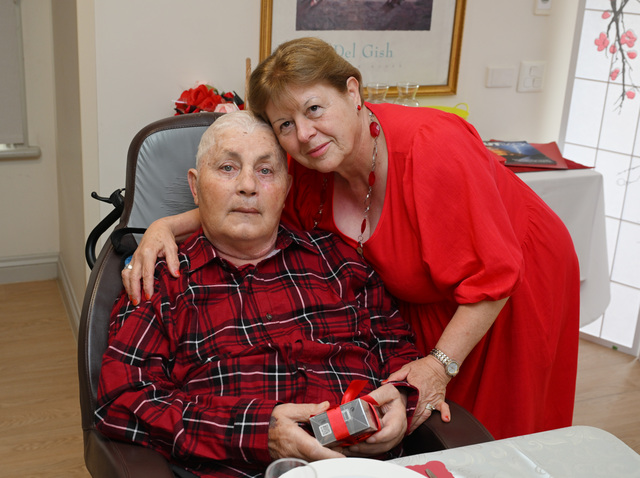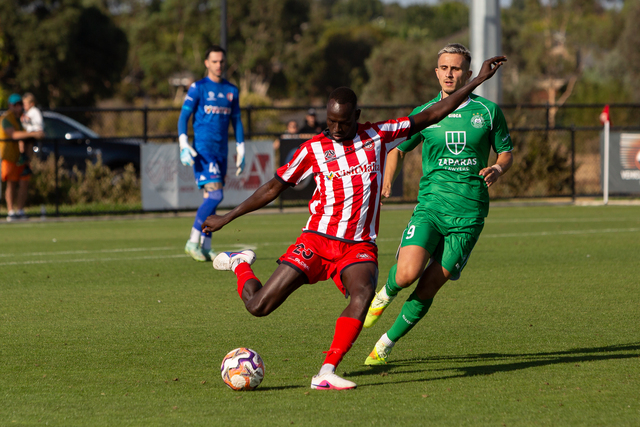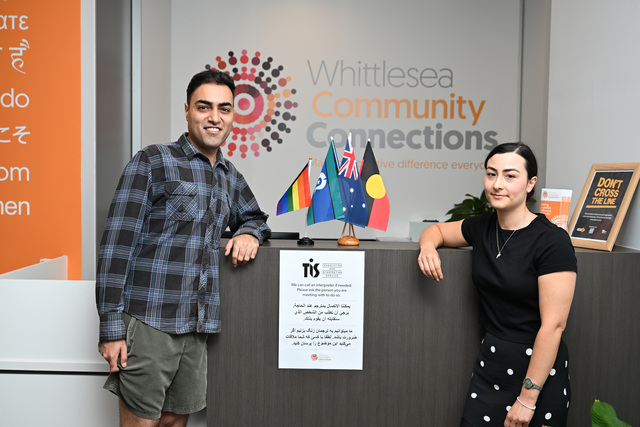The two key players behind urban roots outfit Blue King Brown found their feet on the streets of Byron Bay.
“It’s a beautiful place and a great community,’’ says lead vocalist Natalie Pa’apa’a. “It’s still very much a part of our hometown. Although it’s ever-changing, we do like to get back there and reconnect.”
Blue King Brown, formed in 2004, has a dozen members. The group was formed by Pa’apa’a and Carlo Santone, who clicked after meeting in the laid-back beachside town.
“It was great,” she says. “Performing on the street is one of the toughest gigs around. It teaches you a lot about being an independent artist, which is what we are.
“You have to be able to get them to stop and watch you and then stick around and form a crowd. And then to give you money. To be able to pull that off is a skill … we learnt how to really hone our performance skills from that pressure of raw performance on the streets of Byron.”
Santone has similar fond memories. “We’ve got a lot of friends up there; it was an important time in our lives as musicians,” he says.
As a musical partnership, Santone and Pa’apa’a cut their teeth as a percussion duo jamming on the streets. Off the stage they fell in love.
“Her ability to face the injustices in this world with a truth that is rare to come by … I love that about her,” Santone says of his partner.
He says creative differences are what produce their sound. “There’s a connection in what we do and we come from a different space as well … somewhere in the middle, it all comes together.”
Pa’apa’a says: “There’s no one strict rule. Every song is different and has its own process. Either myself or Carlo will have a musical idea and then we’ll show it to each other, maybe elaborate on it, maybe write a whole song. Then I’ll write the lyrics after that. Then maybe we’ll take it to the band and get it going in a live forum. Other times we’ll just start a jam in the rehearsal.”
Pa’apa’a is a huge energy source for the band. She’s known for her leadership in justice and human rights and translates those themes into her music.
The band released a single this year, Rize Up, which is based on the notion of coming together as a global community to change the world.
Pa’apa’a says she grew up with a soundtrack provided by her mum, listening to the likes of Bob Marley, Jimmy Cliff, Ella Fitzgerald and Jimi Hendrix.
“People are born musicians, I guess,” she says. “It took me 13 years to pick up a guitar and the second I did, that was it. I was like, that’s what I’m gonna do.” She attributes the powerful messages in her songs to growing up aware of injustices within the indigenous community and experiencing racism as an adolescent.
The innate activist in her was always asking, why?
“That started at a young age and naturally happened when I put pen to paper to write music. That’s what came out. It wasn’t necessarily planned.
“It wasn’t something we set out to do, to be a band with social justice issues in our songs. We just wanted to make really good music. We wanted to make kick-ass music that connected with people. Then when the words came out they also happened to be about people and our struggles and also our love for each other and the environment and documenting what it’s like to be alive in history at this time in the world.”
Blue King Brown may have grown from humble beginnings, but they quickly created a buzz in the music industry with their unique sound.
The band recently returned home after an international tour that included the Montreal Jazz Festival and the famed Glastonbury.
“It’s madness,” Pa’apa’a says of Glastonbury. “It’s literally the biggest festival in the world. When we saw it we were like, ‘Oh my God!’. You come driving over the hill and you see it from a distance. It looks like a city. An actual whole suburb. And it’s all tents and stages.”
Blue King Brown’s next step is releasing their long-awaited new album in early 2014. “It will probably be a good solid two years by the time it’s dropped,” Santone says.
“It’s not as if you’re sitting there working on it every day for two years, but you do put a lot of time into it.”
Is critical acclaim important? “Most of the pressure comes internally from ourselves,’’ Santone says. “Our need and our desire to produce the best-quality music that we can. There are pressures from the outside, but the internal ones are the biggest battle. There’s a lot of hard work being in a band. It’s full-time, seven days a week, 24/7. You wake up thinking about it. You go to bed thinking about it.”
Pa’apa’a says she, too, is excited about the impending release.
“There’s a lot of great songs on there. There’s a lot more reggae feel in this album, which we feel Australia lacks compared with the international community. It’s still an underground genre [in Australia], but I believe that’s slowly changing.”
Pa’apa’a promises to continue standing up for those in need. “Music is my life and my weapon. These two things are what I’m planning on continuing. I guess they’re actually one. For us it’s about that live performance experience, sharing energy with other human beings and sharing ideas about the issues that are important to all of us.”
Santone says his goal is to take the band’s music all over the world and spread the message. Its current success doesn’t seem to faze him. “It feels good. We’re doing what we love; that’s the bottom line here.”
Pa’apa’a feels much the same.
“We never forget where we come from … It’s not necessarily an easy life, touring. We’re not like super dooper famous and make shit loads of money, but we love the opportunity to play music live and if that was the case I’d take that any day over money.”

















